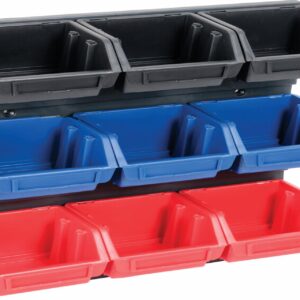Getting noticed can be a real challenge. While many businesses focus on social media and content marketing, there’s an often overlooked tool that can significantly improve your search engine optimisation (SEO)—directory listings. By strategically adding your business information to online directories, you not only make your business more discoverable but you also boost your search engine ranking. The benefits of effective directory listings and how to maximise them are covered in this blog post.
The Power of Directory Listings in SEO
How Directory Listings Work
Online directories are platforms that collect and display business information. They allow users to find local businesses, services, and products quickly. Think of them as digital yellow pages, where potential customers can search for a particular business or service. Some well-known examples include Google My Business, Yelp, and Yellow Pages. These directories often hold a high authority on search engines, meaning being listed on them can positively impact your website’s visibility in search results.
When you add your URL directory to these listings, it acts as a powerful backlink to your site, signalling to search engines like Google that your business is credible and relevant to a particular category or location. When search engines see your business consistently listed across different directories, it reinforces your legitimacy and can improve your ranking.
The SEO Benefits of Effective Directory Listings
When done correctly, directory listings can have numerous SEO benefits:
- Increased Visibility: Online directories allow potential customers to discover your business. The more places your business is listed, the greater your chances of being found by searchers.
- Improved Local SEO: If your business serves a specific geographical area, local directory listings help you appear in searches specific to that area. Adding your business to local directories can significantly enhance your local SEO.
- Quality Backlinks: Search engines value backlinks (links pointing back to your website). Directories often have high domain authority, so their links to your website are seen as valuable, boosting your SEO efforts.
- Enhanced Credibility and Trust: Consistency across directory listings builds credibility for both search engines and customers. When your business details – such as name, address, and phone number, match across all directories, search engines trust your business more, positively affecting your ranking.
Building Effective Directory Listings
Finding the Right Directories for Your Business
It’s not about getting listed in every directory out there – it’s about choosing the right ones for your business. Start by considering:
- Relevance to Your Industry or Niche: Look for directories that specialise in your industry. For example, directories like TripAdvisor or Zomato are valuable if you’re in the hospitality business.
- Domain Authority of the Directory: Focus on directories with high domain authority. Before adding your listing, you can use tools like Moz or Ahrefs to check a site’s domain authority.
- Geographical Reach: If your business serves local customers, prioritise local directories specific to your area. Local listings are particularly helpful for small businesses that want to capture nearby customers.
- Customer Trust and Popularity: Choose directories that customers trust and are well known. For instance, being listed on Google My Business, Facebook, and Yelp can give you instant credibility and attract more traffic.
Crafting Consistent and Accurate Listings
NAP consistency is a critical factor in directory listings. NAP stands for Name, Address, and Phone Number. This information must be identical across every directory your business is listed. Even minor differences, such as using St. on one directory and “Street” on another, can create inconsistencies that hurt your SEO efforts.
- Use a Standard Format: Decide on a standard format for your business name, address, and phone number, and stick with it. This includes deciding how abbreviations are used, how phone numbers are written, and how suite numbers are presented.
- Update Your Listings Regularly: If any of your business information changes—such as your phone number, address, or business name—be sure to update your listings promptly. Inaccurate information can lead to lost customers and damage your credibility with search engines.
- Include Detailed Descriptions and Keywords: Most directories allow you to add a description of your business. Take advantage of this by writing a compelling, keyword-rich description that accurately reflects what your business offers. This can help search engines understand your business better and improve your rankings for relevant searches.
Adding Rich Media to Your Listings
Another way to make your directory listing more effective is to include rich media, such as photos, videos, and even links to social media profiles. Visual content not only makes your listing more attractive but also helps customers understand your business better.
- High-Quality Images: Upload high-quality images of your business location, products, services, and team. Make sure these images are clear and professional, as they help form a strong first impression.
- Videos: Some directories allow you to add video content. Videos are a powerful way to showcase what makes your business unique, provide virtual tours, or explain the benefits of your products or services.
- Social Media Links: Where possible, include links to your social media profiles. This allows potential customers to engage with you across different platforms and provides them with more information about your business.
Gathering and Managing Customer Reviews
Many directories allow customers to leave reviews about their experiences with your business. These reviews can significantly impact your SEO and overall business reputation.
- Encourage Satisfied Customers to Leave Reviews: Ask happy customers to leave reviews on your directory listings. Positive reviews not only boost your credibility but also improve your rankings on search engines and the directory platform itself.
- Respond to All Reviews: Whether a review is positive or negative, make it a habit to respond to all feedback. Acknowledging positive reviews shows your appreciation, and responding to negative ones demonstrates your commitment to resolving issues and improving your service.
- Manage Your Online Reputation: If you receive any inaccurate or inappropriate reviews, most directories allow you to flag or report them. Keeping your online reputation clean helps maintain trust with potential customers and search engines.
Optimising Your Directory Listings for SEO
Leverage the Power of Keywords
Keywords play a vital role in directory listings, just as they do in other SEO efforts. Use keywords relevant to your business in your business description, category, and anywhere else you have the opportunity to add text. This will help search engines match your listing to relevant queries.
- Research and Use the Right Keywords: Use keyword research tools to find terms your target audience uses when searching for businesses like yours. These should be included naturally in your business description and listing details.
- Avoid Keyword Stuffing: While it’s important to include keywords, use them naturally and in moderation. Overloading your listing with keywords can boost your credibility and improve your SEO.
Utilize Category and Tag Options Wisely
Many directories allow you to categorise your business or add tags to your listing. Choose categories and tags that are most relevant to your business, which will help you appear in searches that match your offerings.
- Choose Specific Categories: Instead of opting for general categories, select the most specific ones that best describe your business. For example, instead of choosing “Retail,” go for “Clothing Store” or “Outdoor Equipment Retail.”
- Use Multiple Categories When Applicable: Add your business to multiple relevant categories if the directory allows it. However, ensure these categories are relevant to your business to avoid confusing search engines and customers.
Linking Back to Your Website and Social Profiles
Whenever possible, make sure your directory listing includes a link to your website. This helps drive traffic from the directory to your site and adds valuable backlinks to improve your search engine rankings.
- Ensure the Link is Working: Double-check that the link to your website is correct and functional. A broken or incorrect link will not only deter potential customers but can also damage your SEO efforts.
- Use UTM Parameters for Tracking: Use UTM parameters in your links to understand which directories drive traffic to your site. This way, you can track how effectively each listing brings visitors to your website.
Common Mistakes to Avoid in Directory Listings
- Using Inconsistent Information: As previously mentioned, inconsistency in your NAP can confuse search engines and negatively affect your SEO. Be diligent about keeping all your listings identical.
- Ignoring Negative Reviews: Pretending negative reviews don’t exist won’t make them go away. Address negative feedback professionally and work to resolve the issues.
- Listing on Low-Quality Directories: Listing on spammy or low-authority directories can harm your SEO. Stick to reputable, high-quality directories.
Conclusion
Effective directory listings can play a major role in improving your SEO and boosting your online presence. By choosing the right directories, crafting accurate and compelling listings, and actively managing reviews, you can leverage these platforms to drive more traffic to your site and increase your search engine ranking. Remember to keep your information consistent, take advantage of categories and keywords, and use rich media to make your listings stand out. With the right approach, directory listings can become valuable to your overall SEO strategy.




